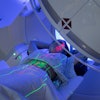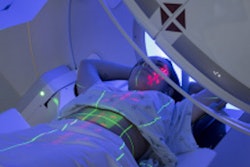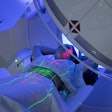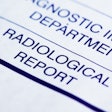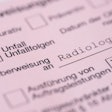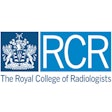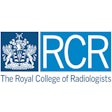
How will nuclear medicine services in the U.K. be affected in the event of a no-deal Brexit? Three U.K. groups, including the Royal College of Radiologists (RCR), have issued guidance on what to expect regarding the supply of radiopharmaceuticals if no deal is agreed with the European Union (EU) before the planned deadline of 29 March.
The U.K. is particularly vulnerable to disruptions in the supply of radiopharmaceuticals because it does not have any nuclear reactors of its own that produce radioisotopes for nuclear medicine procedures like SPECT. Instead, it imports radiotracers produced in continental Europe (radioisotopes produced for PET procedures would not be affected as they are produced at local hospital sites using cyclotrons).
Supply of nuclear medicine radioisotopes should continue without disruption if the U.K. reaches a deal on Brexit with the EU. But in the event of a no-deal Brexit, disruptions in supply could occur, according to a joint statement released on 5 March by the RCR, the British Nuclear Medicine Society, and the UK Radiopharmacy Group. The groups collaborated on guidelines designed to help U.K. nuclear medicine providers cope with a no-deal Brexit.
The groups noted that most of the work preparing for a no-deal Brexit has revolved around stockpiling, and this could already be taking place at radiopharmacy sites. But stockpiling is of limited utility due to the short half-lives of most radiopharmaceuticals, such as molybdenum-99, the raw material for technetium-99m, which is commonly used in SPECT exams.
Companies supplying radiopharmaceuticals to the U.K. have been asked to ship them by air freight, ideally before the Brexit deadline occurs. Nuclear medicine providers should contact their suppliers to determine if any delays are likely to occur. Other advice for nuclear medicine sites includes the following:
- Perform risk assessments of the impact a no-deal Brexit will have on nuclear medicine operations.
- Be sure to communicate with both suppliers and colleagues in nuclear medicine to raise awareness of delays that could occur as a result of a no-deal Brexit.
- Talk to local radiopharmacies to find out what day they receive molybdenum generators. Schedule different delivery days from neighboring radiopharmacies so backup supplies can be arranged.
- Contact your hospital's procurement department to arrange for additional spending outside of established budgets for radiopharmaceuticals.
- If you think a generator may arrive later than is practical on the day of delivery, consider ordering a higher-activity generator for the first several weeks. A one-day delay to delivery would reduce generator activity by 20%.
- Keep your workload lighter for the first week after 29 March if no Brexit deal is reached.
- Book lower-activity studies on your generator delivery day.
- Look at appointment scheduling, and consider scheduling nontechnetium SPECT studies for later in the day.
The statement goes on to provide advice for scheduling and performing specific nuclear medicine procedures, but the situation regarding radionuclide therapy is not as clear, as only one supplier has indicated that it will be able to deliver doses of therapeutic radiopharmaceuticals on specific days. Patients should be notified that their day of treatment could change by a day or two on short notice, the groups advised.
